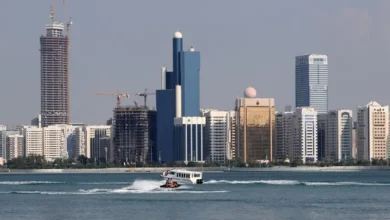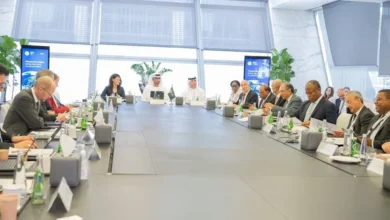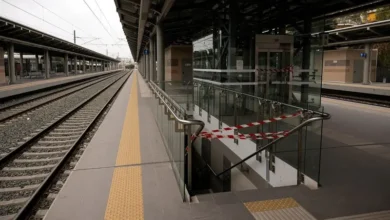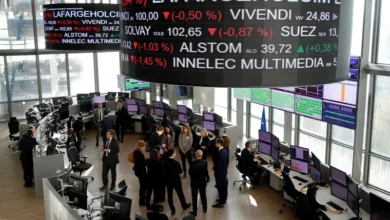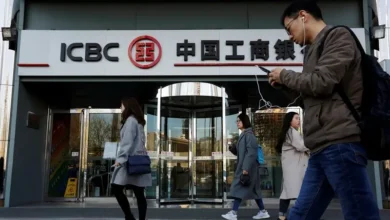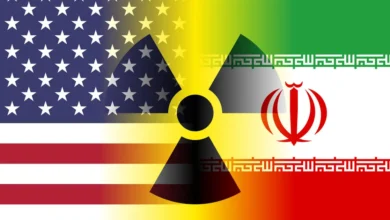Defiant Trump and officials vow to stay course as countries scramble over tariffs
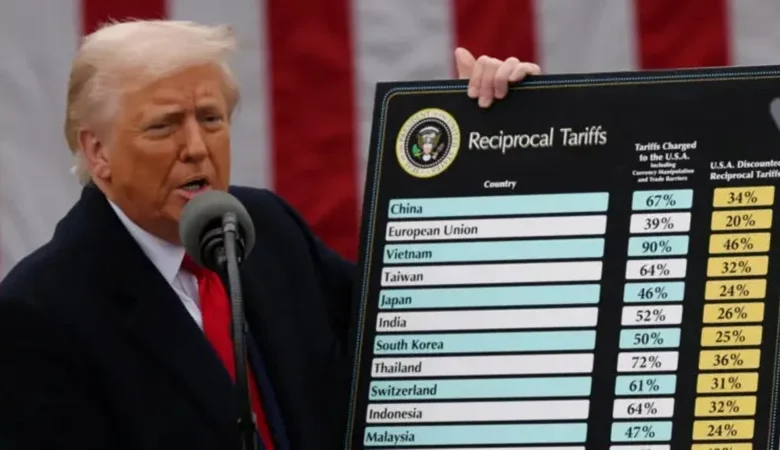
US President Donald Trump and his advisers have defended sweeping tariffs on imports and vowed to stay the course, despite market turmoil and calls to avoid a trade war.
In a series of television interviews, Treasury Secretary Scott Bessent played down recent stock market falls and Howard Lutnick, the commerce secretary, insisted reciprocal tariffs would be implemented as planned.
Bessent said there was “no reason” to expect a recession as a result of the turmoil. “This is an adjustment process,” he said.
Meanwhile, another top adviser, Kevin Hassett, said more than 50 countries have contacted Trump to try to negotiate a deal.
All three major stock indexes in the US plunged more than 5% on Friday, while the S&P 500 dropped almost 6% in the worst week for the US stock market since 2020.
In a sign market fragility could continue this week, Saudi Arabia’s stock exchange – which trades on Sundays – ended nearly 7% lower, its biggest daily loss since the pandemic, state-owned media said.
US banking giant JP Morgan has predicted a 60% chance of a US and global recession following Trump’s tariffs announcement.
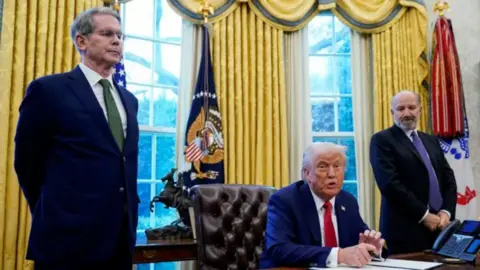
Speaking to reporters aboard Air Force One on Sunday evening, Trump said European and Asian countries are “dying to make a deal”.
He also pushed back against a reporter’s inquiry about American consumers’ “pain threshold” as fears of steep price increases and a market recession grow.
“I think your question is so stupid,” he told the reporter. “I don’t want anything to go down. But sometimes you have to take medicine to fix something.”
Challenged about the turmoil, Lutnick told CBS News on Sunday that the 10% “baseline” tariff on all imports, which came into effect a day earlier, will definitely “stay in place for days and weeks”.
Lutnick went on say the steeper reciprocal tariffs were still on track.
Higher custom tariffs on roughly 60 countries, dubbed the “worst offenders”, are due to come into effect on Wednesday 9 April.
When asked about these tariffs, Lutnick said they were coming. “[Trump] announced it and he wasn’t kidding,” he said.
Lutnick also defended tariffs imposed on two tiny Antarctic islands populated only by penguins, saying it was to close “loopholes” for countries such as China to “ship through”.
‘Maximum leverage’
Bessent used an interview with Meet the Press on NBC to argue Trump had “created maximum leverage for himself, and more than 50 countries have approached the administration about lowering their non-tariff trade barriers, lowering their tariffs, stopping currency manipulation”.
Kevin Hassett, another top economic adviser to Trump, also repeated the claim that more than 50 countries had expressed a desire to begin negotiations. Neither Hassett nor Bessent gave further details of which countries had been in touch.
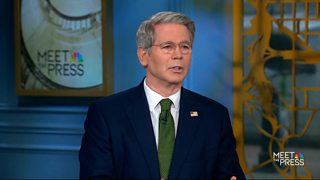
Elsewhere, Indonesia and Taiwan have said over the weekend that they will not impose retaliatory tariffs after the US announced a 32% levy on imports from both countries.
Vietnam’s leader, To Lam, has asked Trump to delay a 46% duty on Vietnamese exports to the US by “at least 45 days”, according to a letter seen by news agency AFP and the New York Times.
However, China announced on Friday that it will impose a 34% tariff on all US imports, beginning on Thursday 10 April.
UK Prime Minister Sir Keir Starmer warned on Saturday that “the world as we knew it has gone”.
Starmer said the UK government will keep pushing for an economic deal with the US that avoids some of the tariffs.
A Downing Street spokesman added Starmer and new Canadian Prime Minister Mark Carney agreed in a phone call that “an all-out trade war is in no-one’s interest”.
On Monday, Israeli Prime Minister Benjamin Netanyahu is expected to meet Trump for trade talks in Washington DC.
Netanyahu, speaking to reporters as he boarded a plane-bound for the US, said he is “the first international leader that is meeting with Trump” since the new tariffs were introduced.
He says this shows their “personal connection and the connection between our countries that is so essential in this time”.
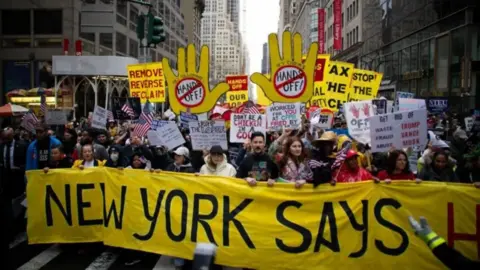
Anti-Trump protests were held in cities across the US over the weekend, in the largest nationwide show of opposition since the president took office in January.
Hundreds of thousands of people turned out in Boston, Chicago, Los Angeles, New York and Washington DC, among other cities, with protesters citing grievances with Trump’s agenda ranging from social to economic issues.
Trump has urged the US to “hang tough” after the market turmoil.
